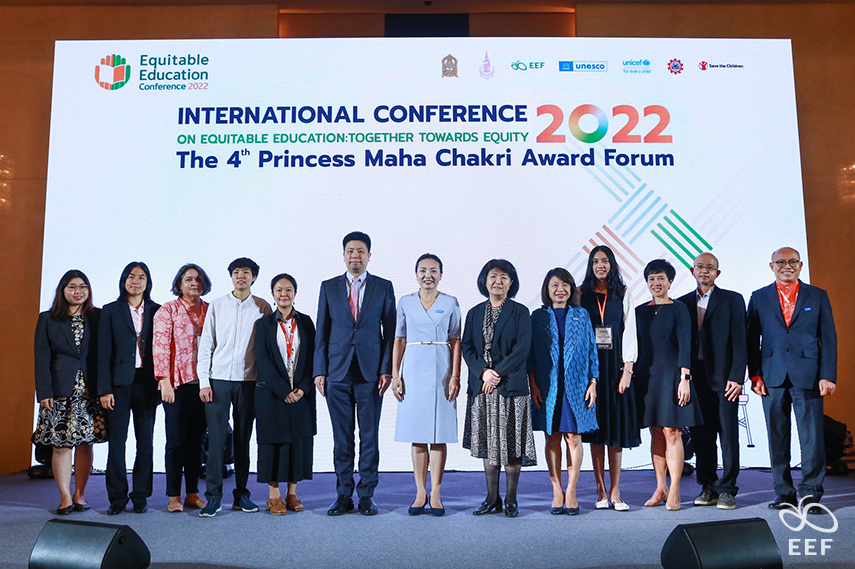
2nd International Conference on Equitable Education: Together Towards Equity 2022
Bangkok, Thailand, 26 October 2022 — Regional and international organizations gathered in the Thai capital from 19 to 20 October for the 2nd International Conference on Equitable Education: Together Towards Equity. Given the COVID-19 pandemic’s numerous disruptions to education, educators worldwide have been concerned with how students coped with online learning, as well as learning losses, and how to safely recover from the education crisis.
The Equitable Education Fund (EEF) has partnered with the Ministry of Education of Thailand; UNESCO Asia and Pacific Regional Bureau for Education (UNESCO Bangkok); UNICEF East Asia and Pacific Regional Office (UNICEF EAPRO); UNICEF Thailand; Southeast Asian Ministers of Education Organization (SEAMEO); Save the Children (Thailand); and Princess Maha Chakri Award to address the critical education issues now facing students and educators in Asia and the Pacific. More than 2,000 educators, developers, and experts from various agencies participated in the Conference at Centara Grand Hotel.
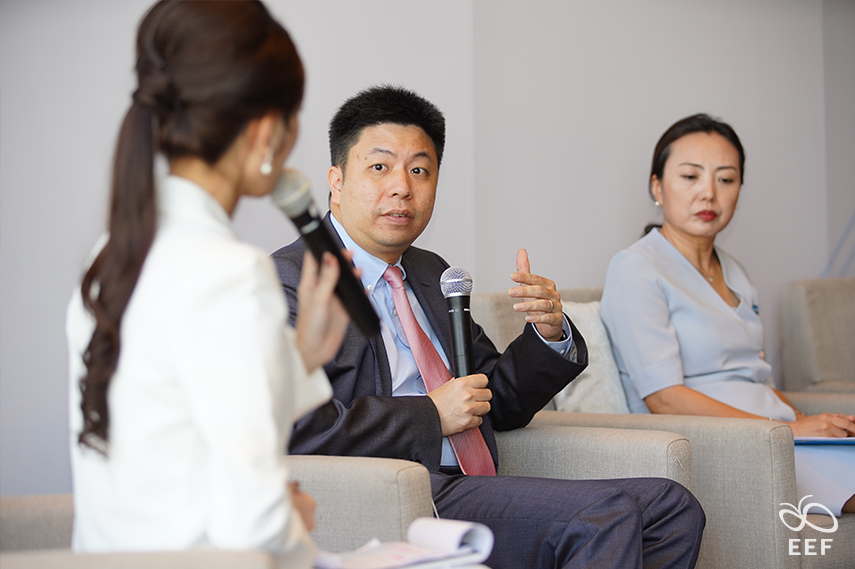
Dr Kraiyos Patrawart, Managing Director, Equitable Education Fund (EEF), Dr. Kraiyos Patrawart, Managing Director
EEF Managing Director Dr Kraiyos Patrawart stated at the press conference, ‘Our agenda is urgent. The impact of the pandemic on students has been enormous. COVID-19 caused physical and emotional issues in the younger generation, resulting in developmental and learning loss. It is our goal to revive and bring them back on track. Reviving requires all sectors and stakeholders to come together and aim to address how we can provide education for all. The conference is part of the rehabilitation program addressing long-term investment for a fruitful future. Our collective efforts are to reduce the risk of the lost generation, which can significantly impact Thai society and the world at large’.
The EEF recently collaborated with UNESCO in hosting the 5th Meeting of Equitable Education Alliance: Identify Opportunities for EEA Activities, with 10 organizations from 12 countries attending the high-level hybrid event. By driving the process and including partners to simultaneously address the educational issues at multi levels, EEF is keen to provide equal access to quality education for all, in particular to vulnerable groups in society who are often already at a disadvantage.
The pandemic created a greater gap than ever before in education equality. It is vital to find a solution to overcome the divide, which could derive from a family’s economic standing, or, more generally, a lack of digital skills in the workplace. Access to education for the young generation is a fundamental human right. The outbreak of the COVID-19 pandemic saw many at-risk children dropping out of school, while children in general faced great risk of learning loss. Plans are in the works to reduce education gaps by summarizing lessons learned to reduce the ongoing education crisis.
The partnering organizations have conducted knowledge exchange for the developmental process. Overall, they have agreed to focus on supporting access by all to quality education. One especially significant measure for achieving this is to prevent children from exiting the education system, and creating a programme that leaves no one behind. Another measure is to foster adult education and encourage lifelong learning, especially in countries with large populations.
What every country should do right now is reopen schools, recover learning loss, ensure education continuity for all, and transform curriculum and education systems. These goals were derived from the Bangkok Statement 2022, which was adopted at the 2nd Asia-Pacific Regional Education Minister’s Conference (APREMC-II), organized in Bangkok in June 2022; and from the outcomes of the Transforming Education Summit (TES), which was part of the United Nations 77th Session of the General Assembly, in New York, in mid-September 2022.
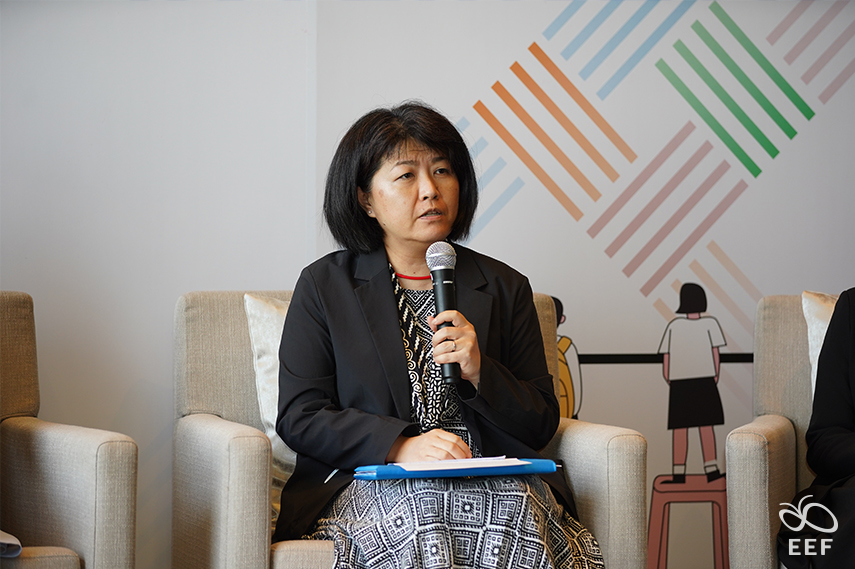
Ms. Rika Yorozu, Head of Executive Office and Regional Programme Coordinator, UNESCO Bangkok,
Ms Rika Yorozu, Head of Executive Office and Regional Programme Coordinator of UNESCO Bangkok, said, ‘At the regional level, UNESCO Bangkok will support the implementation of the national statements of commitment in following-up of the APREMC-II and the TES. UNESCO Bangkok will continue to implement initiatives for out-of-school children and young people in the region, including in Thailand. We are committed to serve as the Secretariat of the Equitable Education Alliance, a network of practitioners on equity in education, together with EEF and new partners which may join after this conference’.
SEAMEO Director Dr Ethel Agnes Pascua-Valenzuela, who recently participated in the TES, shared the discussions from the TES and how this relates to the conference, ‘Building on the Youth Declaration, the Vision Statement, and the global initiatives presented during the summit, the TES is an input to our present conference, which seeks to gather concrete solutions from various experiences and diverse contexts with the hope that through these and by working together, we can transform education and make education systems more inclusive and equitable’.
It is recommended that every country adjust its teaching methods by focusing on basic technical skills and addressing students’ social and emotional abilities. The programme can then build and add creative and entrepreneurial skills to help students realize their full potential. This is important for the world in the twenty-first century.
The key to the educational transition is a curriculum that focuses on the needs and aptitudes of the learners, and an assessment that weighs the ability of the learner rather than comparing it to others. Equality is a prerequisite for all approaches to revitalizing and transforming the education system.
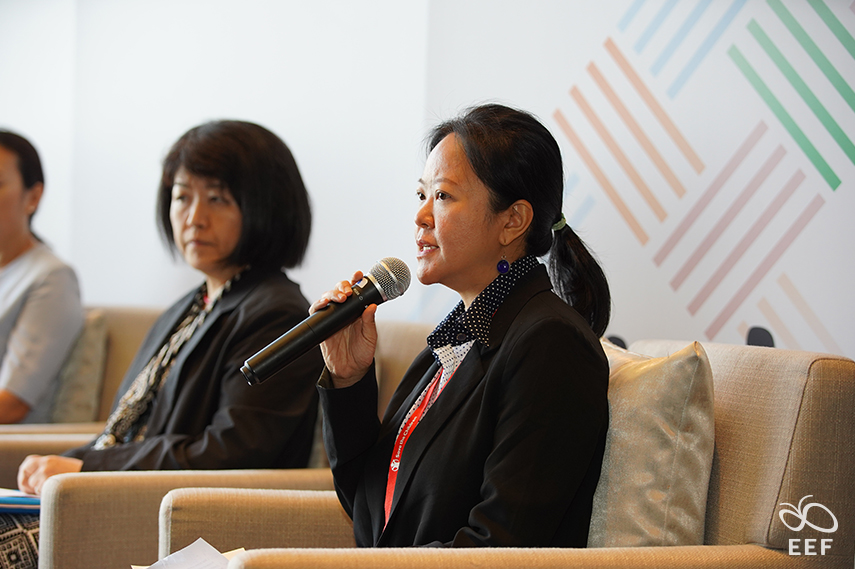
Ms. Warangkana Mutumol, Strategy, Program Quality and Impact Director, Save the Children
Ensuring equality in education in Thailand and other countries in Asia-Pacific requires investment in time and persistence. It is gratifying that all relevant organizations and departments are actively cooperating and taking action. This is key to helping countries meet the 2030 Sustainable Development Goals.
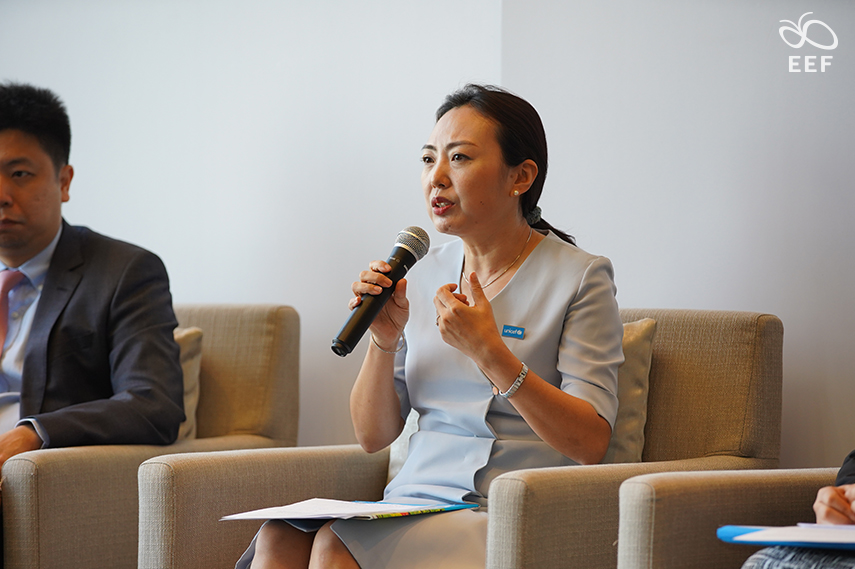
Ms Kyungsun Kim, Director, UNICEF East Asia and Pacific Regional Office (UNICEF EAPRO), and UNICEF Thailand
UNICEF Representative for Thailand Kyungsun Kim commented, ‘We need to take urgent action to address the learning loss that occurred during the pandemic. Working and coordinating together is essential now. The world is just beginning to understand the impact of COVID-19 on education. Ten-year-olds from poor and middle-income countries are unable to read or understand simple stories. The increase in illiteracy jumped from 53 per cent to 70 per cent. This decreases the child’s ability to develop to their full potential. Consequently, this translates into child exploitation. For a girl, she could be forced to marry prematurely and have a child though she is not ready to be a mother. For a boy, he could be cheap child labor’.
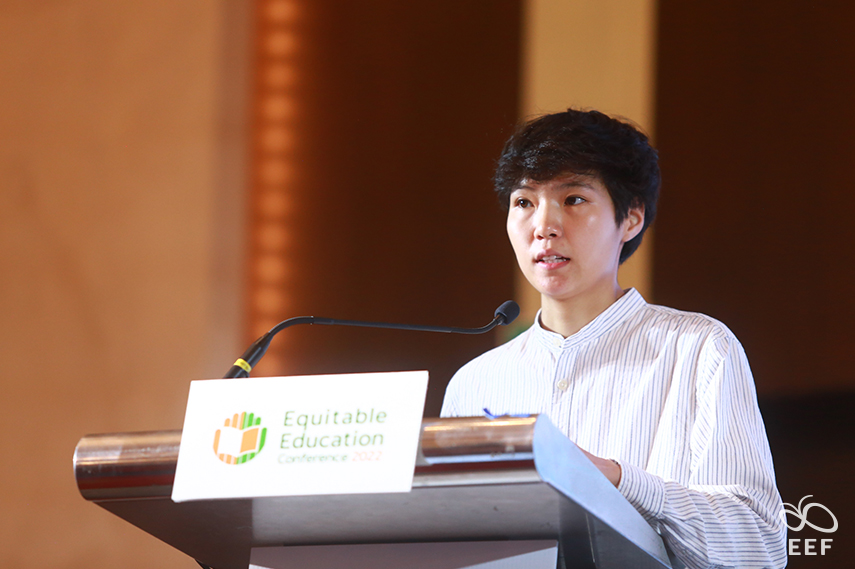
Youth representatives Mr Enkhjin Ganzorig, from Mongolia,
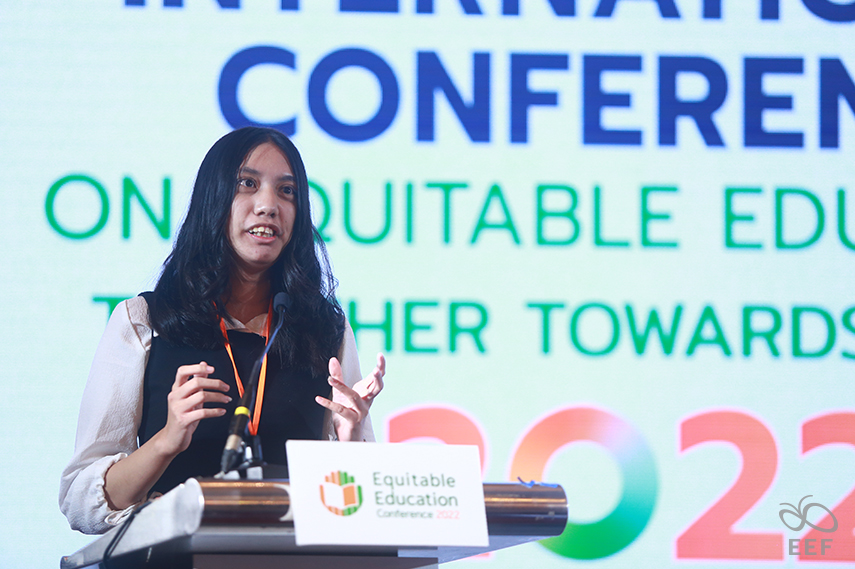
Ms Siribut Musikapodok, from Thailand, Youth Perspectives on Equity in Education
A recent study released by the World Bank in June 2021 in collaboration with UNESCO, UNICEF, USAID, Bill & Melinda Gates Foundation, and UK Foreign Commonwealth and Development Office (FCDO) found that the rate of learning disabilities among children increased significantly during the pandemic. This remains the case even in countries where online learning has been a common tool of instruction. As a result, the current generation of students is likely to lose US$21 trillion in potential earnings, equivalent to 17 per cent of the world’s gross domestic product (GDP) today.
As part of the opening ceremony, two youth representatives shared their viewpoints on equitable education. Mr Enkhjin Ganzorig, a young LGBTIQ+ advocate from Mongolia, said, ‘We are fighting for equity because in the bottom of our heart there is always hope that we could create a brighter society for all. Please make this time for the effort of all LGBTQI+ and people who are fighting for equity for all’.
Meanwhile, Ms Siribut Musikapodok, a visually impaired student from Thailand, said, ‘I have a dream that in the near future we will have an education system, a school where all children can do activities together without discriminating between a handicapped child and a normal child, and where there are teachers who are ready to develop children to their full potential no matter how the child is born. This is because every child has potential, ability, value, and uniqueness. And no child should be devalued because of the inaccessibility of equitable education’.
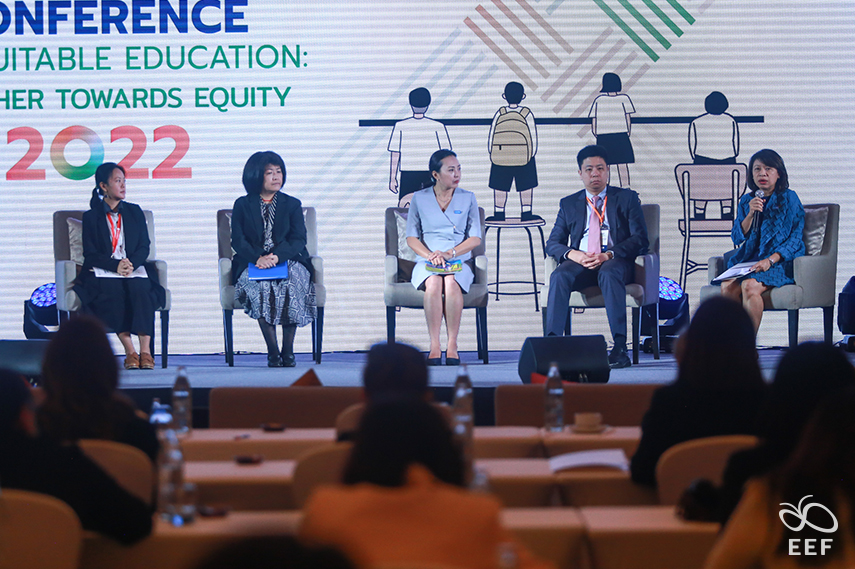
2nd International Conference on Equitable Education: Together Towards Equity 2022
Bangkok Statement in Eng: https://unesdoc.unesco.org/ark:/48223/pf0000381962
APREMC-II’s website: https://apasdg4education2030.org/apremc2022/
Transforming Education Summit website: https://www.un.org/en/transforming-education-summit

